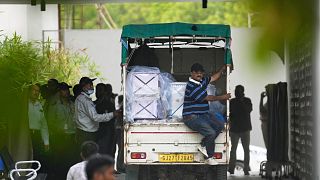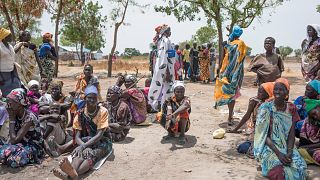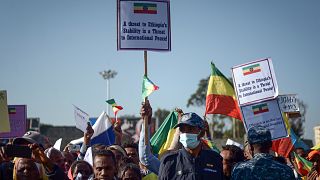Ethiopia
The World Health Organisation (WHO) has in a communique strongly appealed to health professionals to boycott carrying out of Female Genital Mutilation (FGM) operations.
“WHO strongly urges health professionals not to perform such procedures,” a statement released by the global health body stated.
Adding that, “The practice is mostly carried out by traditional circumcisers, who often play other central roles in communities, such as attending childbirths. In many settings, health care providers perform FGM due to the erroneous belief that the procedure is safer when medicalized.”
WHO issued guidelines on how professionals should go about assisting survivors of an act they said was, “… a violation of the human rights of girls and women. It reflects deep-rooted inequality between the sexes, and constitutes an extreme form of discrimination against women. It is nearly always carried out on minors and is a violation of the rights of children,” the statement said.
The guidelines are to assist health workers in countries without FGM, who are often unaware and challenged when they encounter survivors with complications.
200 million women live with FGM globally and face complications during delivery.
Female genital mutilation is a global concern. Health workers worldwide need to be prepared to provide care to women who need it #EndFGM
— WHO (@WHO) May 16, 2016
In the Afar Zone, located in North East Ethiopia, such complications are very common, about 90 percent of women give birth at home. Local NGOs in Ethiopia have been sensitizing the population on the negative aspects of FGM.
“The community believes that the FGM practice is a Muslim requirement. So we have been working with religious leaders in each village to educate the community because FGM is not a Muslim requirement,” said Ashenafi Astatike, Project Coordinator of the ACISDA
In some schools near Dawe, the representatives of the NGOs use drama to educate the students about the negative effects of the practice.
“We use sketches to talk about this issues. When they return home the message is transmitted to their family,” said Mohamme Sied, a teacher
According to 2011 statistics, about 127 out of 1000 children die during complications that arise during child birth in the Afar Zone as a result of FGM.
Ethiopian correspondent- Antoine Galindo











Go to video
Ghana confirms 34 new Mpox cases, total rises to 79
01:07
WHO says the mpox outbreak remains a public health concern
01:02
As cholera cases surge, African leaders urge local production of vaccine
01:34
Flavored tobacco products luring youth to addiction, death - WHO
01:00
New cholera outbreak in Sudan kills 172 people in a week
01:18
Former U.S. president diagnosed with cancer